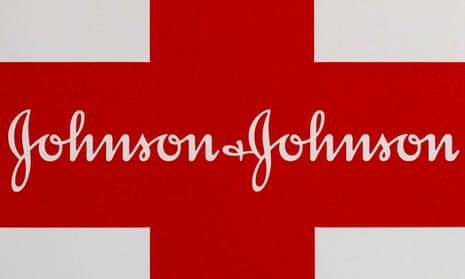South Africa’s Competition Commission will investigate the American drugmaker Johnson & Johnson for the high price it has been charging for the tuberculosis medicine bedaquiline, as well as for extending its 20-year patent until 2027 to block cheaper generics from entering the country.
The commission’s investigation was made public last week by the health department and the Health Justice Initiative (HJI) legal organisation at a media briefing of Médecins Sans Frontières (MSF). The commission investigates matters when it has reasonable suspicion of exploitative or unethical behaviour.
The patent for bedaquiline compounds in South Africa expired in July but was extended to 2027, leading to accusations of evergreening, where pharmaceutical manufacturers make trivial changes to medicines or their use in order to keep their monopoly in the market.
Fatima Hassan, the founder and director of HJI, said: “The Competition Commission believes J&J could be in contravention of Section 8 of the Competition Act, which deals with excessive pricing and exclusionary conduct, which, in this case, refers to the practice of evergreening [because it results in excluding others from the market].
“We believe this is unprecedented. We do not know of other investigations by the Competition Commission into a pharmaceutical company for evergreening.”
South Africa has one of the highest TB disease rates in the world, and – even though TB is curable – it is the country’s leading cause of death.
Bedaquiline, in combination with other medicines, is used to treat multidrug-resistant tuberculosis, a type for which standard remedies do not work. The drug is considered a gamechanger because previous treatment involved up to two years of painful injections, which not only caused side-effects such as hearing loss, but had a high death rate.
South Africa’s health department started giving bedaquiline, which has to be taken for six months, to everyone who needed it in the public health sector in 2018.
At present, the health department buys a six-month course for each patient at 5,400 rand (£232). But from 1 October, when a new contract with J&J starts, that will rise to 5,500 rand (£236), while countries that procure bedaquiline through the Stop TB partnership’s Global Drug Facility will only pay the equivalent of 2,446 rand (£105).
The Global Drug Facility uses pooled procurement to negotiate payments, which makes it possible to bargain for lower prices for TB medicines. But countries such as South Africa, which have open tender systems, can’t legally buy medicine through such systems.
“We are enraged to witness that J&J prioritises profit over the needs of the most vulnerable populations in a country with a high burden of drug-resistant TB,” said Candice Sehoma of MSF. “We call on J&J to offer the same price of 2,446 rand for bedaquiline to the South African government as they have offered to countries that are part of the Global Drug Facility deal.”

For the past decade, health activists have been advocating for the legislation to be changed so that evergreening is controlled. Russell Rensburg, the director of the Rural Health Advocacy Project at Wits University in Johannesburg, said: “Something for our legislators to consider is why we haven’t fixed our [patent] laws to ensure we don’t expose ourselves to these kinds of exploitative practices. Fixing the patent laws is essential to addressing health inequity.”
World leaders are taking part in a high-level discussion this week at the United Nations General Assembly in New York on the progress and stumbling blocks in the fight against TB – including practices such as evergreening.
The Competition Commission has informed Johnson & Johnson of its investigation. The company said in statement: “Johnson & Johnson is a longstanding and committed partner in South Africa’s fight against multidrug-resistant tuberculosis. Today, all patients in South Africa who require bedaquiline, our medicine for multidrug-resistant tuberculosis, have access to it thanks to our collaboration with the government of South Africa and other partners, which has contributed to a steady decline in TB incidence.
“We will continue to work collaboratively with our partners to ensure we can achieve our shared goal of ending TB.”
This story was produced by the Bhekisisa Centre for Health Journalism. Readers can sign up here for the centre’s newsletter
